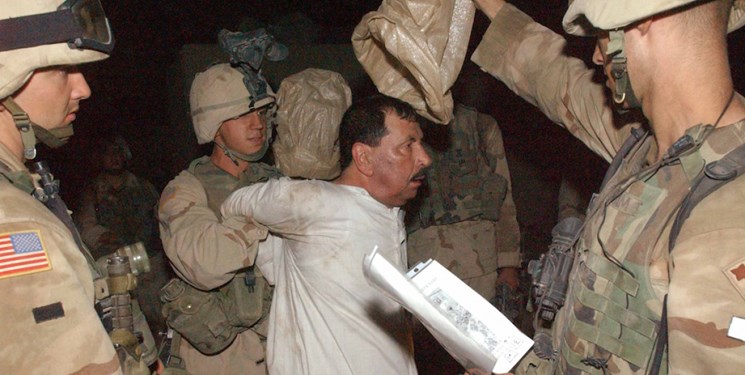Two decades on, the United States has failed to provide redress or compensation to Iraqi victims of its military’s torture and abuse at Abu Ghraib and other prisons, according to Human Rights Watch (HRW).
An HRW report published on Monday said the New York-based group found no evidence that the US government has paid any compensation or other redress to victims, nor has it issued any individual apologies or other amends, Al Jazeera reports.
Between 2003, when the US invaded and occupied Iraq, and 2009, when it closed its largest detention center in the country, about 100,000 Iraqis were believed to have been held by the US and its coalition allies.
Human rights organizations have documented torture and other forms of ill-treatment by US forces in Iraq in that period, something which forced then-President George W Bush to apologize, although he sought to minimize the systemic nature of the torture by calling it “disgraceful conduct by a few American troops.”
A February 2004 report to the US-led military coalition by the International Committee of the Red Cross (ICRC) said military intelligence officers told the ICRC that up to 90 percent of people in coalition custody in Iraq in 2003 had been arrested by mistake.
Despite a promise of compensation by the US defense secretary at the time, Donald Rumsfeld, that never materialized.
HRW said some victims tried to apply for compensation through the Foreign Claims Act, but a combat exclusion clause in the act hampers requests, alongside another clause that says claims must be filed within two years of the alleged harm.
The report added that Iraqi claims for justice in US courts have also been dismissed through a 1946 law that gives US forces immunity for “any claims arising out of the combatant activities of the military or naval forces, or the Coast Guard, during the time of war.”
The only lawsuits that have advanced through courts have targeted military contractors, according to HRW, but those have faced considerable obstacles as well, at times dragging through the justice system since the late 2000s.
“Twenty years on, Iraqis who were tortured by US personnel still have no clear path for filing a claim or receiving any kind of redress or recognition from the US government,” said Sarah Yager, Washington director at HRW.
“US officials have indicated that they prefer to leave torture in the past, but the long-term effects of torture are still a daily reality for many Iraqis and their families.”
The HRW report said out of numerous cases, only 97 US soldiers implicated in 38 cases of abuse that the US Army Criminal Investigation Division reviewed in Iraqi centers between 2003 and 2005 received punishments.
Only 11 soldiers were referred to a court-martial to face criminal charges, nine of whom served prison sentences.
“There is no public evidence that any US military officer has been held accountable for criminal acts committed by subordinates under the doctrine of command responsibility,” the organization said, adding that presidents from Bush to Joe Biden have rebuffed efforts for meaningful accountability.
There have been efforts to introduce stricter controls on the treatment of people in US custody abroad, including laws by Congress, policy reviews, and an action plan released by the Pentagon last year.
However, HRW said they have failed to include reliable mechanisms for reviewing past harm done to men, women and children in US custody in Iraq, many of which have gone uninvestigated and unacknowledged for 20 years.










Trackbacks and Pingbacks